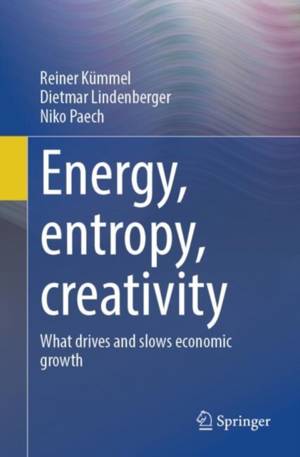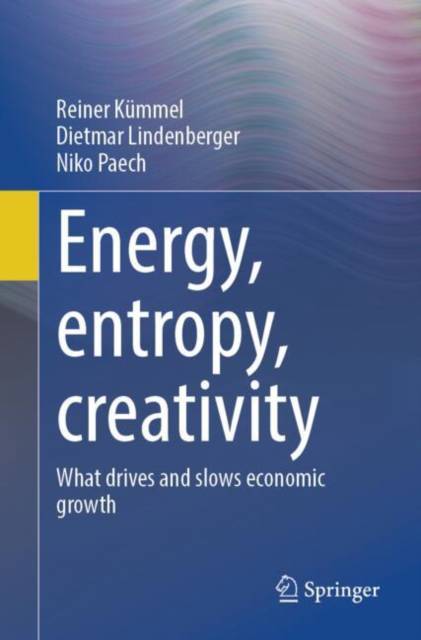
- Afhalen na 1 uur in een winkel met voorraad
- Gratis thuislevering in België vanaf € 30
- Ruim aanbod met 7 miljoen producten
- Afhalen na 1 uur in een winkel met voorraad
- Gratis thuislevering in België vanaf € 30
- Ruim aanbod met 7 miljoen producten
Energy, Entropy, Creativity
What Drives and Slows Economic Growth
Reiner Kümmel, Dietmar Lindenberger, Niko PaechOmschrijving
This book helps to understand the importance of thermodynamics to economics, the environment, and society. It argues for the integration of the first two laws of thermodynamics into textbook economics. In doing so, systemic similarities in thermodynamics and the theory of economic growth lead to the use of similar mathematical methods that allow industrial economies to be described realistically. From this, the authors propose tools for solving social and environmental problems.
The book is aimed at anyone interested in interdisciplinary research on the developmental problems of the economy and society and who wants to understand what is driving their upheavals.
The authors of the book have been dealing with these development problems for a long time: the theoretical physicist Reiner Kümmel from the University of Würzburg, the physicist and economist Dietmar Lindenberger from the University of Cologne and the Energy Economics Institute at this university, and the economist Niko Paech from the University of Siegen.
"It is my pleasure to recommend this book to readers. It is driven by the idea of exploring the physical limits of human economic activity using thermodynamics, one of the most universal physical theories we have."
Comment on the original German edition by Dieter Meschede, Professor of Physics, University of Bonn
Specificaties
Betrokkenen
- Auteur(s):
- Uitgeverij:
Inhoud
- Aantal bladzijden:
- 201
- Taal:
- Engels
Eigenschappen
- Productcode (EAN):
- 9783662657775
- Verschijningsdatum:
- 6/05/2025
- Uitvoering:
- Paperback
- Formaat:
- Trade paperback (VS)
- Afmetingen:
- 156 mm x 234 mm
- Gewicht:
- 312 g

Alleen bij Standaard Boekhandel
Beoordelingen
We publiceren alleen reviews die voldoen aan de voorwaarden voor reviews. Bekijk onze voorwaarden voor reviews.









